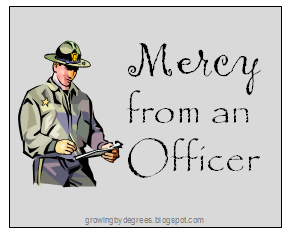...I
will never be able to teach anything to anyone as well as they will be
able to teach it to themselves if given the opportunity. So maybe
that's what the definition of teacher should be: someone who makes
learning possible, which often means simply preparing the ground for you
to teach yourself" (Mali, What Teachers Make, 88).
Teachers
have a real temptation to resist. At least I do. With kids, I like to
be on stage, in charge, needed. I want to be the one who asks all of the
questions, who already knows the answers, and who initiates the assignments. I like to play school. And I kind of, sort of like to be in control. So the temptation is to insert myself into the hub of the learning circle.
Can you relate?
The problem with the teacher being at the center is that the students aren't, and they are the ones who should be. We need to purposely get out of the way, staying on the periphery to coach and encourage, and allow students to be their own teachers.
What are some ways to do this at home, to "prepare the ground," particularly when students are in elementary school?
Create a rich learning environment.
Books,
instruments, paper, art supplies, maps, dry erase boards,
manipulatives, games, craft and sewing supplies, balls, creative toys
(i.e. Legos, K'nex, Zome Tools), puzzles...make sure they're available
and accessible. Your home may never be featured on the cover of a
magazine, but at least your children will have plenty to keep their
minds and hands busy.
View the world as your student's classroom.
Your
students don't have to read and write to have a valid learning
experience. You can encourage learning by visiting museums, historical
re-enactments, concerts, performances, demonstrations, parks, and
exhibits. Even a trip to the grocery store or bank can be educational.
Be a willing taxi driver, and remember to talk (and listen) to your
passengers. The trip is valuable learning time as you enjoy
conversation together. Who knows what learning trail will be forged as a
result of the trip!
Focus on the process.
Every
product may not be all you hoped, but valuable learning occurs
throughout the process. Value it; don't short-circuit it, especially if
you're glued to an agenda. Realize that mistakes are part of the
process, and we all know that mistakes can be our best opportunities
for learning.
Visit the library regularly.
Let
students explore the library, finding what interests them. If they
migrate to the same series every time, nudge them toward something new.
Or send them on a scavenger hunt of the library, so they can see the
broader collection. Or host a book club, inviting each participant to
advertise a favorite book in a particular genre.
Strew.
Out of sight can be out
of mind, so pull out a book or a game or a creative toy and place it strategically on the coffee table, on the arm of the
couch, on the back of the toilet, somewhere it will be noticed, picked
up, and enjoyed. I used to be a shameless strewer, getting even my
husband to read something I purposely littered in the living room.
(Okay, maybe it's a bit manipulative, but librarians do it, too, you
know.)
Get out of the way.
Remember
that your kids aren't you. One of the ways I learned this lesson was in
sewing. If I need to sew an article of clothing, I buy a pattern and
follow it meticulously. When two of my daughters decide to sew, they
envision in their heads what they want and work to unveil the vision. I
can marvel quietly at their skill now, but on their first attempts,
admonitions longed to bust out of my mouth: "You can't do that; you need
a pattern." I had to muzzle my mouth as I reminded myself that just
because I need a pattern doesn't mean they need one. They aren't me!
Make suggestions.
I like to
cast my line of suggestions or ideas and see which daughter takes my
bait. I must admit, though, it worked tons better when my girls were in
elementary school. My ideas don't generate the same level of
enthusiasm anymore. (But I can still try. : D)
Allow for stewing.
You can contort
yourself in multiple ways to explain a concept, but if the student isn't
ready, she'll end up in tears, and you'll be hopelessly tangled. More
often than not, if you leave it and revisit it later, mysterious brain
linkages will form, causing the longed-for light bulb to shine.
Sometimes all students need is time.
Be a learner.
Whether you're on an errand
or an adventure, with a book or a craft project, be open to learning
and growing alongside your kids. You may already have your diploma and
degree(s), but you've only dipped your toe in the ocean of knowledge.
Learning something new will give you empathy when you're tempted to
push, and a hobby when you crave control.
What other ways do you "prepare the ground" in your home?





























